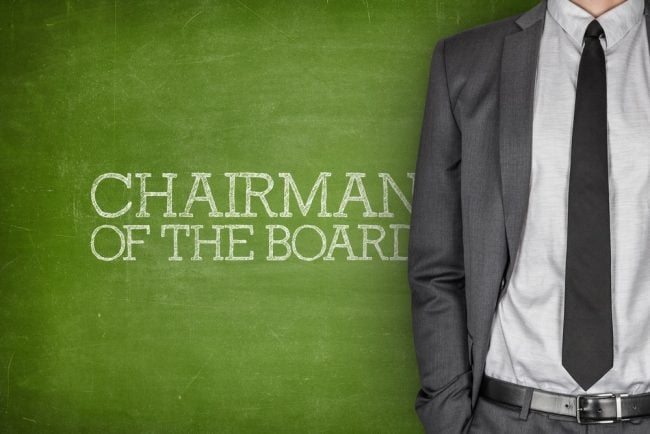When 17-year-old Richard Myles “Dick” Johnson, a high schooldropout from a poor Philadelphia family, enlisted in the U.S.Marine Corps in 1941, he had never even heard of the term “creditunion.”
|Two weeks after the start of the Korean War, when Johnson was aMarine demolitions officer with a small squad who snuck behindenemy lines to blow up a North Korean train, he only knew creditunions were places where you could borrow money.
|Through the Vietnam War and right up to April 1972, when Johnsonretired from the Marine Corps as a colonel with 30 years ofservice, he was still unfamiliar with the inner workings offinancial cooperatives. But that didn't stop him from entering asecond career with credit unions, one that exercised as much if notmore influence on him, he said, as did his years of militaryservice.
|Johnson, now 91 and living in a retirement community in the LosAngeles County city of La Verne, Calif., joined the credit unionindustry in a manner similar to how he responded to his country'scall to service during World War II. The first time around, Johnsonenlisted, but the second time he was drafted.
|“My last Marine Corps assignment was comptroller at the MarineCorps Recruit Depot in San Diego,” Johnson, who also served inposts at the Pentagon and the U.S. Embassy in China during hismilitary career, said. “I was asked to put in my resume to becomeCEO of the $3 million Marine Corps Recruit Depot Federal CreditUnion. I left the Corps on a Friday and reported to the creditunion Monday morning.”
|Johnson had learned that four members of the struggling creditunion's board, who had worked for him at the recruit depot,recommended him for the credit union post, and this initially madehim skeptical of their intent. However, he soon learned that thecredit union was in trouble with regulators and his leadershipskills would be put to good use.
|“I announced to my new staff that I was highly qualified topaint and sweep,” Johnson remembered. “Everything else I would haveto learn.”
|With the help of more experienced credit union executives,Johnson quickly learned his new trade, stabilizing the tiny creditunion and doubling its assets in four years. Most importantly,Johnson said, he was bitten by the cooperative bug after whichthere was no going back.
|
In 1976, Johnson was offered the top slot at seven-year oldWestern Corporate Federal Credit Union, better known as WesCorp,then located in San Dimas, Calif. It was a position he would holduntil 2002, when he officially retired at age 78 after 26 years ofservice.
|WesCorp, caught up in the corporate credit union meltdown, wasplaced into NCUA conservatorship in 2009. The corporate creditunion was officially dissolved in 2012.
|Despite its demise, Johnson believed that the corporate systemwas a major milestone for the credit union movement. The corporatesfor the first time allowed the credit union community to stand onindependent financial footing, he explained.
|“You will note my bias here, but credit unions created a miraclewhen they built the corporate system,” Johnson said. “In the yearsbefore, virtually every credit union had a bank or savings and loanaccount where they invested, borrowed, left their liquidity and didall their financial transactions. In the course of 20 years, thattrend reversed and all the income previously earned by banks wasretained by the credit unions.”
|In addition to the financial recession, a lack of adequate NCUAexaminers trained to understand wholesale credit unions' operationswere among the challenges faced by the corporates during theirearly days, Johnson said. More than one corporate struggled withexaminers that their executives felt lacked the proper backgroundto regulate the more complex institutions.
|“WesCorp was severely affected by these regulators,” Johnsonsaid. “The NCUA had lots of experience in examining natural-personcredit unions, but they were undergoing on-the-job training inexamining corporates. The examiners had lots of authority, onlybasic technical knowledge and a fear of losing their jobs.”
||In addition to its educational shortcomings, the NCUA's successin managing the corporates and other areas depended on who occupiedthe chairman's seat and that person's attitude toward the agency'srelationship with the credit unions it regulated.
|“To my mind, when Edgar Callahan was appointed NCUA chairman [in1981], things dramatically began to change,” Johnson said. “Ed andhis team of Chip Filson and Bucky Sebastian shook the entire creditunion movement and took an ax to the old-boy network. They thoughtoutside the box; in fact, they didn't even recognize there was abox.”
|Sen. Roger Jepsen, who was appointed chair in 1985, built onwhat Callahan had started, spending a lot of time in the fieldlearning about credit unions. It was when Norman D'Amours was namedchairman in 1993 that things took a turn for the worse, Johnsonsaid.
|“Disaster struck with Jepsen's successor, who announced early onthat he was the regulator and we were the regulated,” Johnson said.“I called it 'shooting the wounded,' and we almost lost thecorporate system then.”
|
D'Amours led the NCUA during a period of increasing unsettlementthroughout the movement. He was succeeded by then-sitting boardmember Dennis Dollar, now a consultant, who managed to steady theship amid the movement's roiling waters, Johnson said.
|These days, Johnson, a widower for the past six years, spendshis time reading (he admits to being a world news junkie) andswimming an hour a day – a natural progression for a former scubadiver who has made more than 1,000 dives. He also spends a greatdeal of time writing, communicating and entertaining visitors.
|“I am visited by my former Wes-Corp employees and the fewMarines left still on this side of the grass,” he said.
|As for life lessons, Johnson said he has learned as much fromhis decades of credit union service as he did during his militarycareer. Several of those lessons cross the boundary between his twostints of service.
|Training employees to pay attention to members and their wantsand needs is what sets credit unions apart, he explained, addingthat in that same way, credit unions must understand the humanitywithin their staffs and respond accordingly, both to improve theirservice to the credit union and the credit union's service tothem.
|“As the years roll by, everything will change except people'squest for acceptance,” Johnson added. “When the inevitable daycomes – as it will for us all – the only thing that will havecounted are the people.”
Complete your profile to continue reading and get FREE access to CUTimes.com, part of your ALM digital membership.
Your access to unlimited CUTimes.com content isn’t changing.
Once you are an ALM digital member, you’ll receive:
- Critical CUTimes.com information including comprehensive product and service provider listings via the Marketplace Directory, CU Careers, resources from industry leaders, webcasts, and breaking news, analysis and more with our informative Newsletters.
- Exclusive discounts on ALM and CU Times events.
- Access to other award-winning ALM websites including Law.com and GlobeSt.com.
Already have an account? Sign In
© 2024 ALM Global, LLC, All Rights Reserved. Request academic re-use from www.copyright.com. All other uses, submit a request to [email protected]. For more information visit Asset & Logo Licensing.









